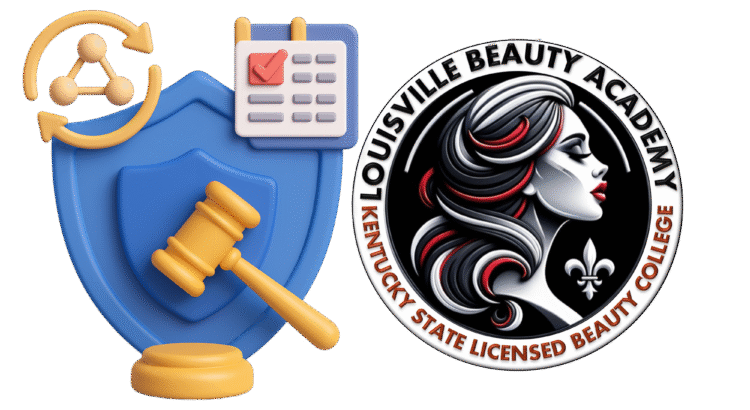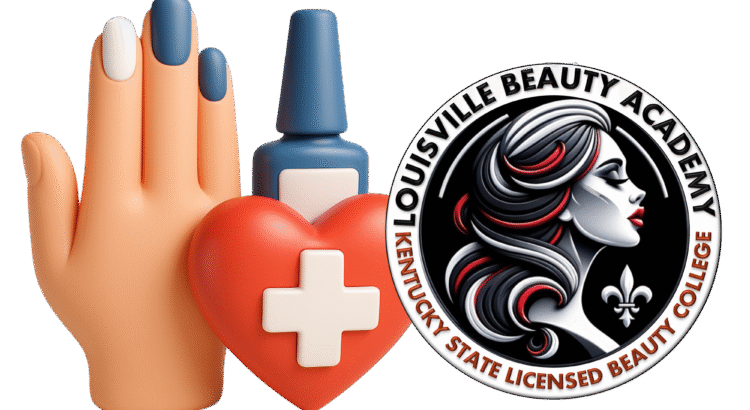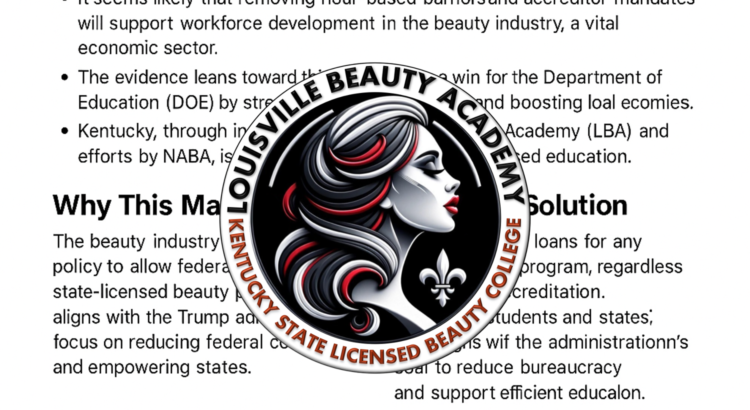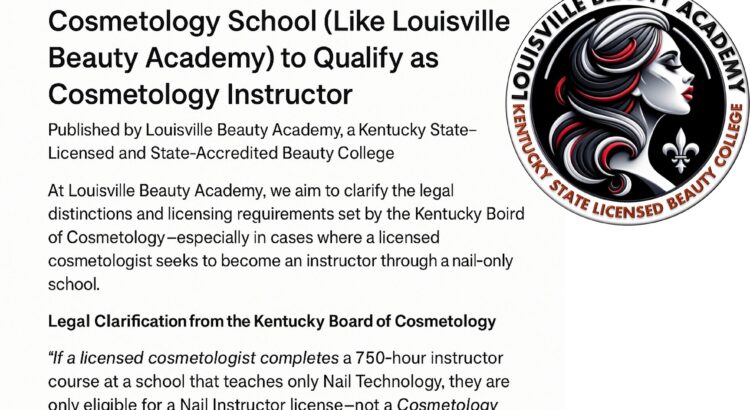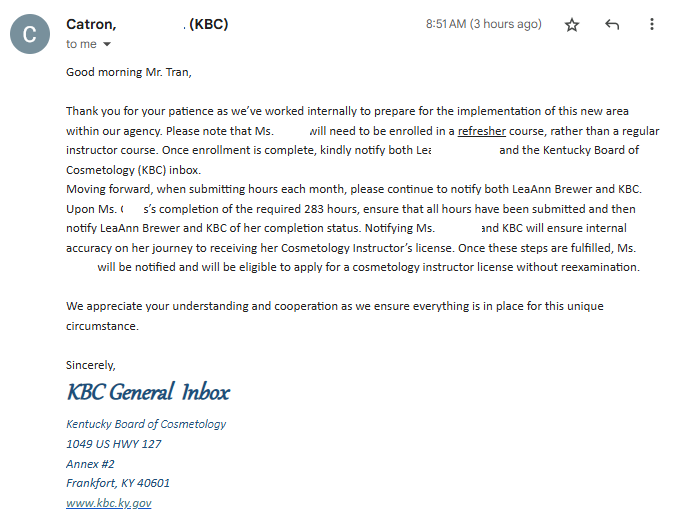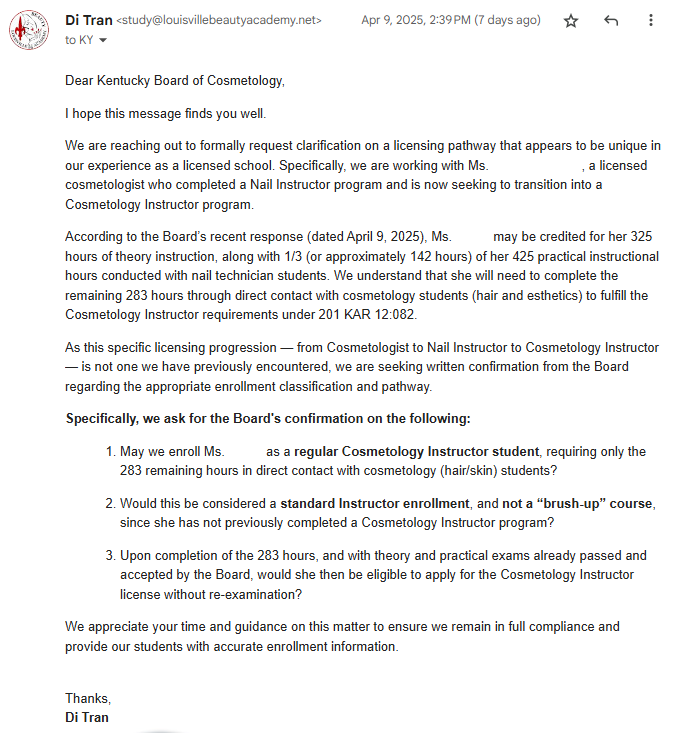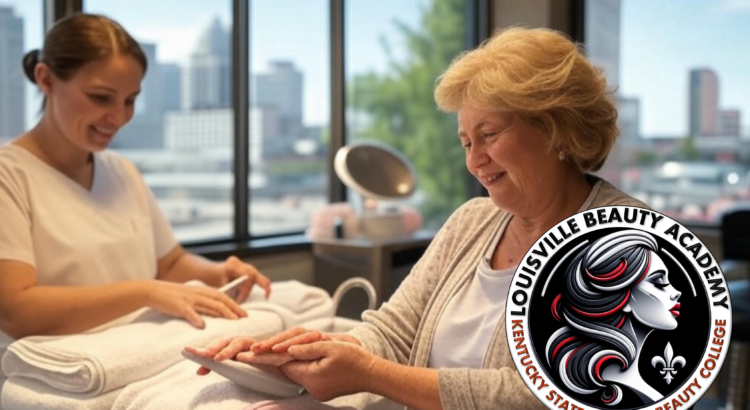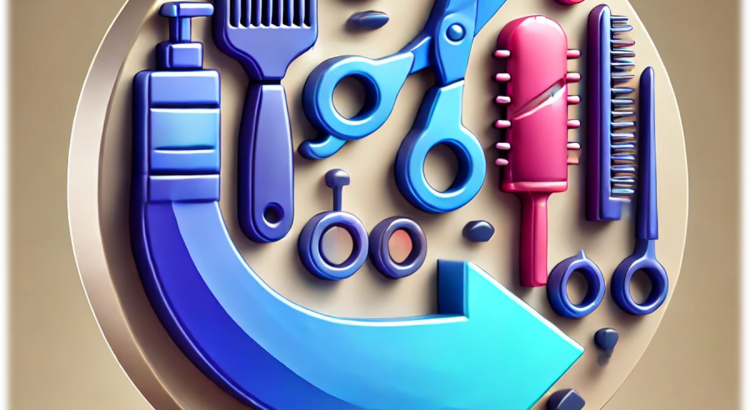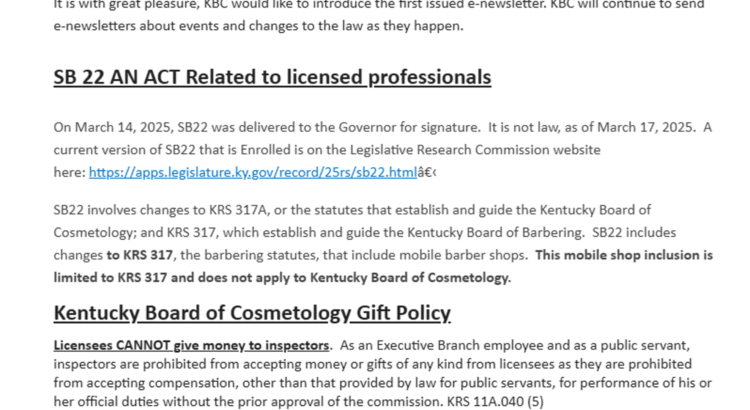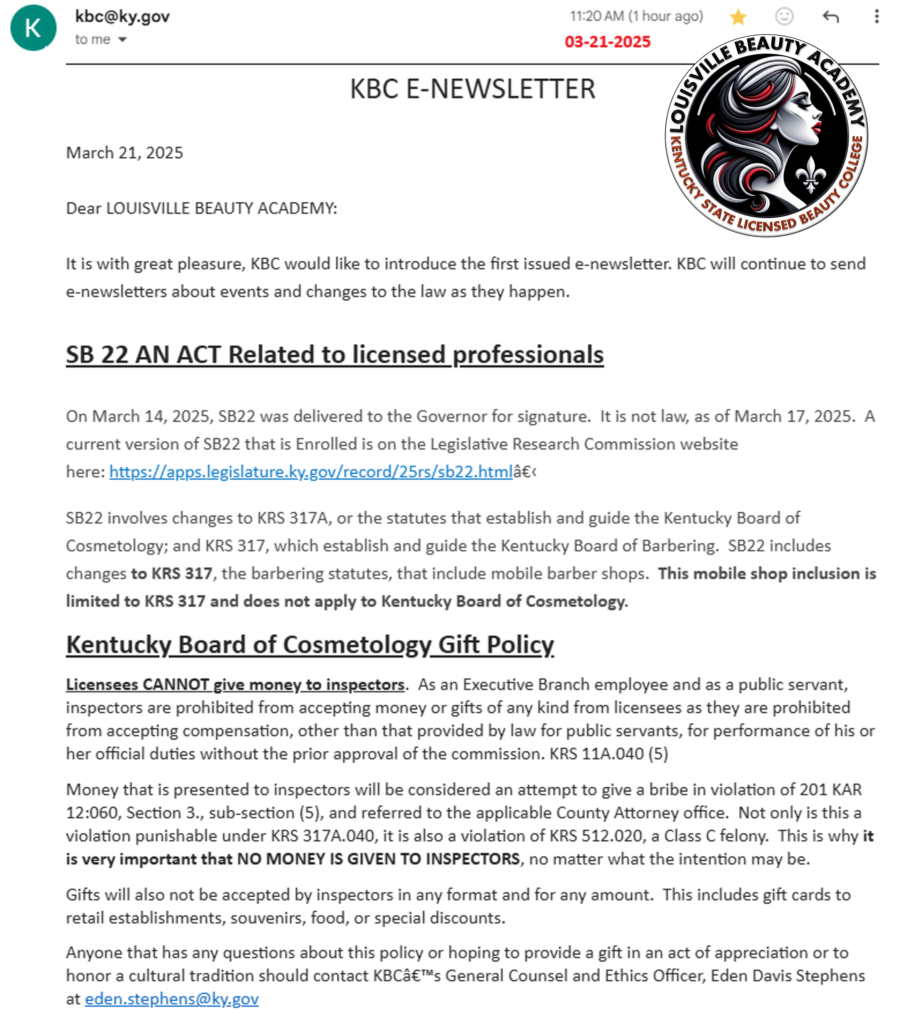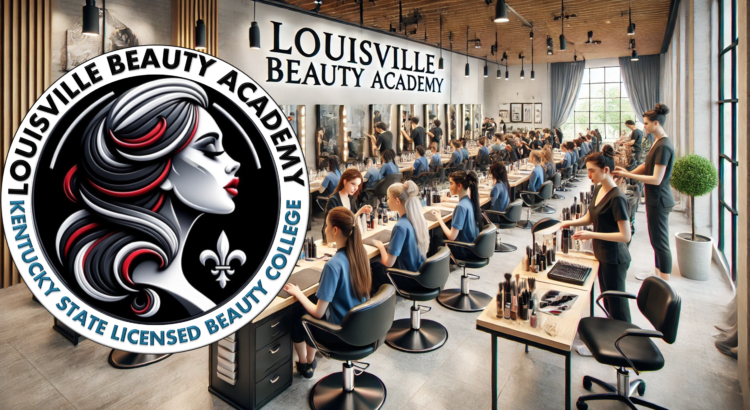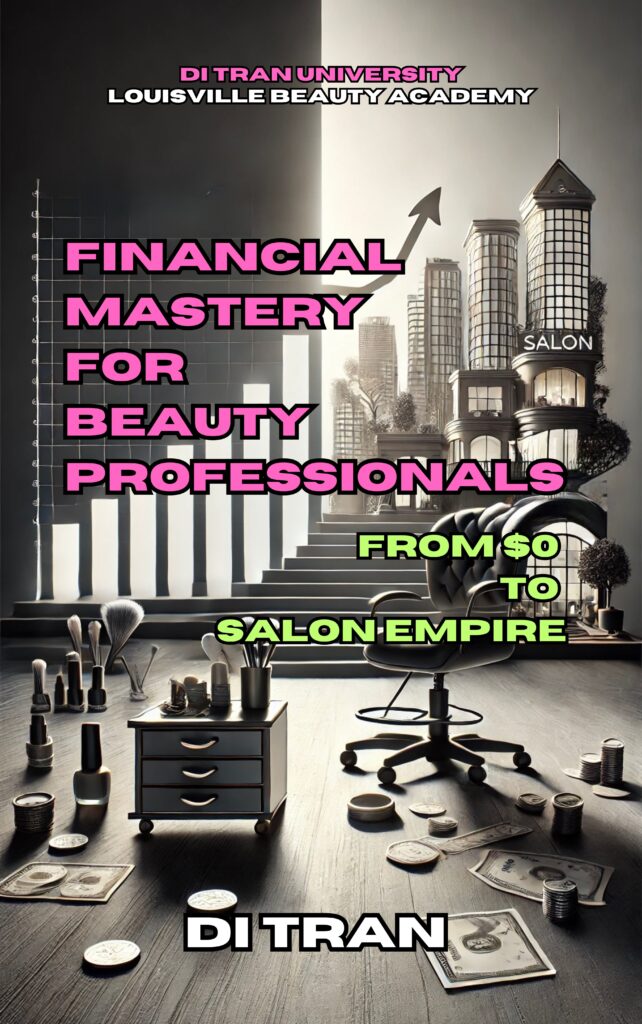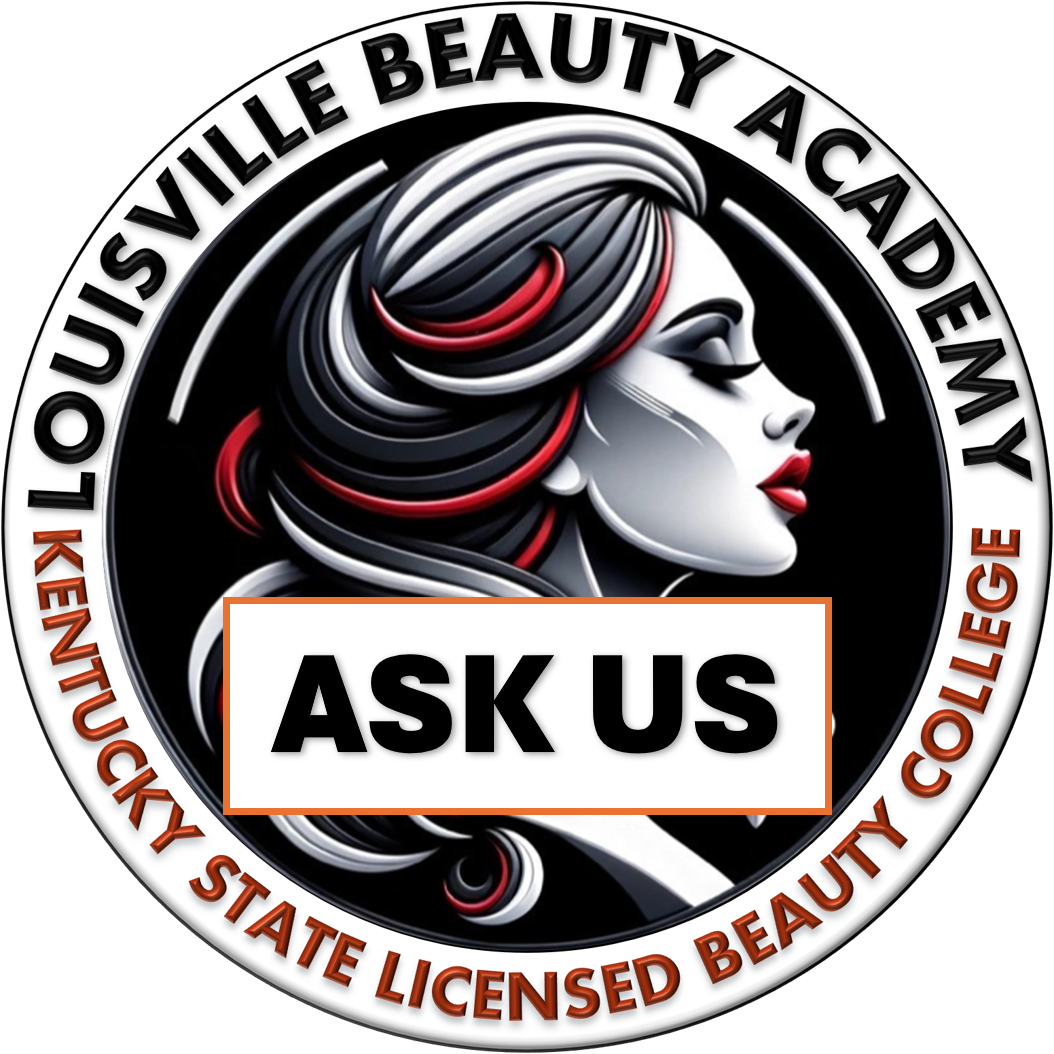Introduction
Nail care is often seen as a cosmetic indulgence, but a closer look reveals profound health and wellness benefits. From the physical gains of regular manicures and pedicures (improved skin and nail health, better circulation, relief from aches) to the psychological comfort of human touch and care, nail services contribute to holistic well-being. Equally important is the cultural dimension: the modern nail salon industry in the U.S. was revolutionized by Vietnamese American entrepreneurs, transforming luxury beauty treatments into affordable self-care rituals for the masses. This report explores the physical and psychological health benefits of nail care, the therapeutic human touch provided by nail technicians (often immigrant women), and how immigrant-led salons democratized self-care. It also highlights how institutions like Louisville Beauty Academy carry this legacy forward, training diverse cohorts in a community-centered way. Wellness, immigrant care work, and the human touch emerge as central themes in understanding why a nail appointment can be so much more than just pretty fingers and toes.
Physical Health Benefits of Manicures and Pedicures
Caption: A nail technician provides a soothing foot massage during a pedicure. Such massages boost blood circulation and alleviate tension in overworked muscles, improving joint mobility and overall foot health.
Regular manicures and pedicures offer tangible physical health benefits beyond aesthetic improvements. Key advantages include:
- Improved Circulation and Mobility: The massages that accompany professional hand and foot care significantly promote healthy blood flow. Increased circulation helps reduce muscle tension and pain in the extremities and can improve joint flexibility. For example, people who spend long hours typing, standing, or walking often feel relief after a manicure/pedicure massage, as stiffness in the hands and feet is eased. Warm water soaks further dilate blood vessels to stimulate circulation, while also relaxing muscles. In aromatherapy pedicures, the combination of warm water and essential oils not only enhances relaxation but also helps improve blood flow and soften tissues.
- Healthier Skin and Nails: Routine nail care keeps hands and feet hygienic and can prevent infections. Soaking, cleaning, and clipping during a pedicure, for instance, help fend off fungal or bacterial growth and prevent ingrown nails that could lead to painful infections. Exfoliation is another crucial step – by sloughing away dead skin cells, deep exfoliation encourages new cell growth and unclogs pores around nails. This not only yields smoother skin but can strengthen the nails themselves. Pedicure technicians often remove calluses and thick skin on the feet; callus removal not only makes feet softer but also improves weight distribution on the soles. By evening out pressure points, pedicures may even help alleviate strain in the legs and lower back caused by heavy calluses.
- Pain Relief and Muscle Relaxation: The combination of warm water soaks, gentle scrubbing, and massage provides therapeutic pain relief. A warm spa water soak softens tense muscles and prepares the feet and hands for treatment. Many salons infuse the soak with herbal ingredients or aromatherapy oils (lavender, chamomile, mint, etc.) to reduce inflammation and enhance comfort. In fact, a recent spa article noted that an aromatherapy foot soak is “a holistic treatment that targets both physical and emotional well-being,” as the warmth of the water stimulates blood flow and oils like lavender soothe soreness. By the time the nail technician begins massaging and stretching the feet or hands, clients often experience a noticeable reduction in aches or stiffness. The massage pressure and movements help release tension from tired muscles and can prevent cramping. This aspect of nail care can be especially beneficial for clients with arthritis or those who use their hands and feet strenuously; regular treatments keep extremities supple and reduce pain over time.
- Moisturizing and Rejuvenation: Professional nail services typically include applying moisturizers, oils, or herbal lotions to the skin. This hydration is vital for maintaining skin integrity. Keeping the skin of the hands and feet well-moisturized prevents cracks that could invite infections. Emollient-rich creams and cuticle oils nourish the often-neglected skin around nails, maintaining its elasticity and preventing painful hangnails or splits. Over multiple sessions, clients notice their hands and feet looking more youthful and supple, thanks to improved circulation and consistent exfoliation and hydration. In fact, by boosting circulation and collagen production, manicures and pedicures can even tighten skin and reduce the appearance of fine lines or roughness on the hands and feet. The result is not only comfort but also a healthier, more vibrant appearance.
In summary, far from being mere pampering, regular nail care is a form of preventative health maintenance for your extremities. It keeps the skin and nails in optimal condition, wards off common ailments (like athlete’s foot, fungal nails, cracks, and calluses), and contributes to overall physical ease. As one beauty training institute put it, “you would be surprised how a simple trip to the nail salon can benefit you physically… Both men and women can benefit greatly from putting aside time to take care of their nails and feet”. By investing in routine manicures and pedicures, individuals are effectively caring for some of the hardest-working parts of their body – and setting the foundation for comfort and mobility in day-to-day life.
Emotional and Therapeutic Value of Nail Care
Caption: A quiet moment between a nail technician and her client during a manicure session. Nail appointments often double as a time for clients to relax, feel cared for, and even share their thoughts, providing a form of informal therapy and human connection.
Beyond the physical perks, nail care yields significant psychological and emotional benefits. The nail salon experience can soothe the mind and uplift the spirit in ways that are both subtle and profound:
- Stress Reduction and Relaxation: The very act of sitting down for a manicure or pedicure forces us to slow down and be present. For the duration of the appointment – typically an hour or more – clients are encouraged to unplug from their phones and daily worries. It becomes “an act of self-care and perhaps a therapy session”, notes Dr. Ravi Gill, a health psychologist, highlighting that a nail appointment offers a rare opportunity to sit still without distraction. The ambiance of many salons (soothing music, warm water, pleasant aromas) and the rhythmic, gentle touch of the technician can trigger the body’s relaxation response. Many services incorporate aromatherapy (scented oils or lotions), which further calms the mind and can reduce anxiety. Clients often report leaving the salon feeling lighter and more centered than when they walked in. In fact, even a single manicure can measurably lower stress levels; it’s common to hear someone say they “feel like a weight has been lifted” after enjoying this form of micro-pampering. Essentially, the salon visit provides a mini mental-health retreat amid life’s chaos.
- Being Cared For and Emotional Comfort: There is a profound therapeutic power in human touch and care. When a nail technician holds your hands or carefully tends to your feet, it creates a sense of being cared for that many clients find deeply comforting. Licensed clinical psychologist Dr. Charlynn Ruan notes that physical touch is something modern society is often deprived of: “As a society, we are very cut off from physical contact… So if someone does not have [nurturing touch] at home, a manicurist might provide the only nurturing touch they receive all week.” This nurturing contact can fulfill a basic emotional need for connection and caring. Moreover, the client–technician interaction can be as supportive as it is simple. Nail techs frequently offer a friendly ear, listening without judgment as clients chat about anything and everything. Many people find it surprisingly easy to open up about personal matters while getting their nails done. Indeed, nail technicians often end up playing an informal therapist role – clients freely share stories of their struggles, celebrations, or day-to-day life, all while the tech offers a sympathetic nod or words of encouragement. This dynamic – someone devoted to your comfort, quietly listening as they hold your hand – creates a safe emotional space. The ritual can alleviate feelings of loneliness or stress simply through compassionate human interaction.
- Mood Enhancement and Confidence: Another psychological boon of manicures and pedicures is the boost in self-esteem and mood that often accompanies well-groomed nails. Taking the time to invest in one’s appearance sends a powerful signal of self-worth. “Taking the time to do our nails is a way to signal that we care for ourselves and our bodies,” explains Dr. Ruan, adding that because manicures are not a strict necessity, they feel like a special treat or indulgence – a reward we give ourselves purely for joy. This has a self-affirming effect: you’ve given yourself permission to feel good. It’s similar to the lift in confidence people experience after a new haircut or putting on a favorite outfit. In fact, psychological research has shown that small beauty routines can make us feel more confident and put-together, which in turn can improve our outlook. Many people describe the “fresh manicure feeling” as one of poise and empowerment – even if life is hectic, having neat, polished nails creates a sense that “at least I have this handled.” Seeing a pop of color or a neat shine on your fingertips throughout the day becomes a mood booster in itself. This mental uplift is why some individuals intentionally schedule nail appointments before big events or stressful weeks: the polished nails serve as a small anchor of confidence and calm amid uncertainty. In short, nail care can bring a smile to your face each time you glance at your hands, reinforcing positive feelings and self-confidence long after you leave the salon.
- A Form of Mindfulness: Lastly, there is a meditative aspect to the nail care process. Many salons encourage clients to simply close their eyes and enjoy the pampering quietly. Focusing on the gentle filing, the cooling mask on your feet, or the deliberate strokes of polish can pull your mind away from ruminations. In this sense, a manicure or pedicure can become a mindfulness practice, where one stays present in the pleasant sensations. For those who struggle to justify “doing nothing,” a nail appointment is a socially acceptable way to pause and recharge mentally. It’s an hour where you are not expected to perform or produce – your only job is to sit and receive care. This reprieve can be emotionally restorative, helping reduce burnout and mental fatigue.
Overall, the nail salon experience nourishes mental health in varied ways – by reducing stress, fulfilling emotional needs for care and touch, boosting confidence, and providing a break from life’s demands. It exemplifies how beauty services and wellness intersect: making us look better often makes us feel better, too, and the caring human connection in salons amplifies that effect.
Safe Spaces and “Therapy” in Immigrant-Led Nail Salons
One particularly intriguing aspect of nail care culture is how immigrant-led salons – especially Vietnamese-American nail salons – have created unique emotional safe spaces for clients. The majority of nail technicians in the U.S. are immigrants or first-generation Americans (Vietnamese being the single largest group in this workforce), and this cultural context adds layers of meaning to the salon experience:
- Empathetic, Non-Judgmental Listening: Many immigrant nail techs approach their work with a humble, service-oriented ethos that helps clients feel comfortable opening up. Language barriers, in fact, can inadvertently foster a judgment-free environment. In Vietnamese-run salons, it’s common for the technicians to speak limited English or converse in Vietnamese among themselves, while the client chats in English. Rather than hindering communication, this dynamic can make clients feel at ease speaking freely. They need not worry that the technician will interject or offer unsolicited advice – the tech often responds with polite nods or simple affirmations, allowing the client to vent and process their thoughts aloud. Clients often describe nail appointments as an emotional release, where they can “talk about anything without fear of gossip or judgment,” knowing the details of their stories will likely remain within those four walls. In a way, the nail salon chair becomes a confessional – with the nail tech as a compassionate but unobtrusive presence. This unique setup lets clients work through their feelings verbally, much like in a therapy session, but in a far more casual setting. It’s telling that some nail technicians have even referred clients to professional therapists when they recognized a client was in distress from the conversations. Such anecdotes underscore that the emotional support exchanged in salons is genuine and impactful.
- The Human Touch in Immigrant Care Work: Nail care is a form of care work, and immigrant technicians have been its backbone. Often coming from cultures where physical caregiving and hospitality are highly valued, these workers infuse warmth into their services. Consider the image of a Vietnamese nail technician gently holding a client’s hand – two people from different worlds literally connecting through touch. One documentary filmmaker observed that nail salons are one of the few places in American life where “immigrant Asian women and Black American women [are] holding hands” in a bond of trust and care. This speaks to the profound social impact immigrant nail workers have: they not only provide personal care, but also bridge communities through everyday acts of kindness and service. The salon becomes a rare intimate space where individuals of different races and languages connect skin-to-skin, hand-in-hand. In predominantly immigrant-staffed salons, clients often appreciate the unspoken empathy that transcends language – a feeling that their well-being truly matters to the technician. This contributes to a sense of emotional safety and comfort that keeps clients returning not just for polished nails but for the restorative, caring atmosphere.
- Cultural Tradition of Quiet Dignity: Vietnamese and other immigrant nail techs have cultivated a salon culture that prioritizes client comfort, sometimes in contrast to high-end spas where elaborate conversation or English-language pleasantries are expected. In many immigrant-owned salons, there is a culture of “quiet diligence” – the focus is on delivering excellent service rather than engaging in chatter (unless the client leads it). Clients who might feel self-conscious about their life problems or embarrassed to talk about certain issues often find it easier to open up when the listener is quietly focused on painting their nails. There is a freedom in the privacy afforded by a technician who won’t probe too deeply or carry the conversation beyond polite exchanges. As a result, clients can use the time as their space – to chat or to sit in silence as needed, without any social pressure. This flexible, client-led communication style is another reason nail appointments are emotionally restorative. People can unload their emotional “baggage” in a trusting environment, or simply enjoy companionable silence with another person, which itself can feel comforting in a world that often forces interaction.
- Informal Community and Support Network: Immigrant-led salons also tend to become tight-knit communities in their own right. Regular clients develop familial bonds with their nail techs (despite language gaps) over years of appointments. It’s not uncommon for a client to know the owner’s family members, celebrate milestones like the birth of a technician’s child, or bring gifts from travels – a testament to the relationships formed. This sense of community can be therapeutic: clients feel they have an “extended family” at the salon who cares about their well-being. For immigrant technicians, these relationships are also meaningful, as they take pride in providing not just a service but also comfort and familiarity to their patrons. In interviews, some Vietnamese nail workers have expressed that making a client happy gives them purpose and emotional reward, which in turn fuels the positive atmosphere in the salon. Thus, the care flows in both directions – technicians and clients uplift each other, creating a reciprocal therapeutic environment unique to immigrant-driven salons.
In essence, the immigrant influence in the nail industry has shaped salons into more than beauty service stations; they are havens of cross-cultural connection and emotional solace. Clients from all walks of life find in these salons a place where they can be pampered physically and understood emotionally, even without many words. The “therapy” of nail care is not formal counseling, of course, but it’s a form of everyday healing – facilitated by the gentle presence, listening ears, and skilled hands of immigrant women who have built their lives around caring for others, one manicure at a time.
Democratizing Self-Care: The Vietnamese-American Nail Salon Revolution
Caption: Actress Tippi Hedren (standing left) watches as her personal manicurist Dusty Coots (seated) teaches nail care to a group of 20 Vietnamese refugee women in California, 1975. This humanitarian training program sparked a Vietnamese-led transformation of the U.S. nail industry, making beauty services accessible and affordable to everyday Americans.
It is impossible to discuss nail care in America without acknowledging the outsized role of Vietnamese Americans. In the 1970s, manicures and pedicures were considered a luxury reserved for the wealthy – high-end salons in big cities catered to an exclusive clientele, and regular women (especially working-class or minority women) rarely enjoyed such services. The entry of Vietnamese refugees into the nail trade “transformed the market by making manicures and pedicures affordable to the everyday American”, as one industry history recounts. This democratization of self-care is a remarkable story of immigrant entrepreneurship that had broad wellness implications:
- From Luxury to Routine Beauty: Before the 1970s, getting your nails done was often an expensive indulgence. Vietnamese Americans changed that paradigm. A pivotal moment came in 1975 when Hollywood actress Tippi Hedren, as part of a refugee support initiative, arranged for professional nail training for 20 Vietnamese women in a California refugee camp. The women quickly mastered the craft and began working in salons, eventually opening their own salons. This spark ignited a movement: Vietnamese immigrants found that doing nails was a skill they could learn relatively quickly, with low start-up costs, and crucially, language fluency was not a major barrier to entry. They could serve clients even with limited English by focusing on the quality of their work. Over the next few decades, Vietnamese entrepreneurs opened countless small nail salons across the U.S., undercutting high-end spa prices and bringing costs down to a level working-class women could afford. By partnering with or serving diverse communities (for instance, opening salons in African American neighborhoods in Los Angeles in the 1980s), Vietnamese salon owners proved that there was a huge market for affordable nail care. Women who had never before thought of getting a “mani-pedi” could suddenly treat themselves without breaking the bank. In effect, a service once seen as a pampering luxury became a routine form of self-care for millions of Americans of all backgrounds.
- Wellness and Confidence for the Masses: The impact of this shift can’t be overstated. By turning nail care into an accessible routine, Vietnamese Americans helped integrate it into the self-care habits of everyday people. Today, it’s common for teachers, office workers, nurses – women (and men) from all economic strata – to get their nails done regularly as a pick-me-up or grooming standard. This has wellness implications: the stress relief and confidence boosts described earlier are no longer reserved for the elite. As the UCLA Labor Center noted, “due to immigrant and refugee labor… the nail salon industry grew from a high-end, luxury service to an affordable service available to low- and middle-income clients.” In other words, immigrant nail workers opened the door for low and middle-income individuals to enjoy the mental health benefits and personal care that come with salon services. The affordable pricing also means clients can maintain their nail health continuously (e.g. monthly pedicures to keep feet callus-free and clean), which has tangible physical health benefits as we covered. This democratization of beauty is thus also a democratization of wellness – a gift from the Vietnamese community to American society at large.
- An Economic and Cultural Phenomenon: The Vietnamese-led nail salon boom also created thriving micro-businesses and jobs, turning the industry into a multibillion-dollar sector. Vietnamese Americans now comprise roughly 51% of the nail technician workforce nationwide – an incredible statistic considering they were virtually absent from the industry before 1975. In some states like California, the majority of salons are Vietnamese-owned, sometimes with multiple generations of a family in the business. This concentration of immigrant-owned businesses has given the nail salon a distinctive cultural character. Stepping into a strip-mall nail salon, one might hear Vietnamese pop music in the background or see Lunar New Year decorations on the walls, a subtle infusion of Vietnamese culture into everyday American life. The presence of these salons in nearly every town means the immigrant story is woven into communities everywhere – even if clients don’t realize it, they are participating in an immigrant-driven small business success story each time they get their nails done. Culturally, this has also led to greater visibility and interaction: countless Americans have formed friendly relationships with their Vietnamese nail techs, bridging language and cultural gaps through simple weekly or monthly interactions. These repeated cross-cultural encounters – often intimate, as noted, with hand-holding and personal conversations – have a quiet but meaningful impact on social cohesion and mutual understanding.
- Affordable Self-Care as Empowerment: By pioneering low-cost nail services, Vietnamese entrepreneurs also empowered women (both clients and the workers themselves). Clients with modest incomes gained access to an empowering beauty service that helps them present confidently in their jobs and lives (having neat nails or a relaxing hour off can translate into feeling more poised in daily challenges). Meanwhile, Vietnamese and other immigrant women found in the nail trade a viable path to financial stability and entrepreneurship. Doing nails offered a rare opportunity for newcomers with limited English to start a business and build wealth relatively quickly. The industry famously has low barriers to entry – training for a nail technician license is shorter and cheaper than for cosmetology in general, and new salons can open in small storefronts with a few chairs and basic equipment. This enabled many Vietnamese families to establish economic footholds in America. The ripple effect is profound: as these families flourished, they invested in their children’s education and futures, contributing back to the economy. In essence, the nail salon became a vehicle for the American Dream for an entire refugee community. And the services they provided simultaneously allowed other Americans to feel a bit more glamorous and cared-for in their daily lives. It’s a symbiotic model of immigrant success and community wellness enhancement.
The legacy of the Vietnamese nail salon revolution is visible on every Main Street – bright neon “Nails” signs, busy storefronts with customers filing in after work for an appointment, and the ubiquitous sight of women emerging with that satisfied glow that comes from being pampered. What started as a compassionate gesture by Tippi Hedren in 1975 blossomed into an industry that generates over \$8 billion annually (as of recent estimates) and touches people’s lives in intimate ways. By making self-care affordable and routine, Vietnamese Americans didn’t just change an industry – they changed our culture around self-maintenance and wellness, making beauty and stress relief accessible to all. This democratization of self-care stands as one of the great success stories of immigrant influence on American well-being.
Advancing the Legacy: Louisville Beauty Academy’s Community-Centered Mission
While the nail salon revolution has been largely a grassroots and family-driven enterprise, its spirit of empowerment and inclusivity is now being carried forward in formal education by institutions like Louisville Beauty Academy (LBA) in Kentucky. LBA exemplifies how the industry’s immigrant-founded legacy can translate into community-focused education and professional development. It builds on Vietnamese American nail traditions while innovating to create the “most trusted, inclusive, and flexible nail education” in the region – a model that could inspire beauty education nationwide.
Building an Inclusive Pipeline of Professionals: Louisville Beauty Academy was founded by Di Tran, himself a Vietnamese immigrant who arrived in the U.S. with no English proficiency. Having overcome the very barriers many newcomers face, he designed LBA to empower immigrants and underserved populations to achieve professional licensing in beauty trades. The academy actively works to remove linguistic and financial barriers that often discourage immigrants from attending beauty school. For example, LBA championed the implementation of multilingual licensing exams in Kentucky. As of 2024, aspiring nail technicians in Kentucky can take their state board exam in Vietnamese, Spanish, Chinese, Korean, or other supported languages – a change that LBA proudly helped bring about to “break down language barriers for aspiring professionals”. In a report late 2024, LBA noted that within a two-month period, 51 candidates took the nail licensing exam in Vietnamese (the highest uptake among the new languages), along with dozens more in Korean, Chinese, Spanish, and Portuguese. This is a groundbreaking step in making sure non-native English speakers can become licensed without language holding them back. LBA’s role in pushing for these changes reflects its mission to offer “empowerment through education”, ensuring that “language will never be a barrier to success.” By offering bilingual support, translated materials, and a diverse staff, the academy creates a safe learning environment where immigrants feel comfortable and confident – much like the salons themselves, the school is a welcoming space for all cultures. This inclusive approach not only increases diversity in the beauty industry; it also addresses workforce shortages by tapping into talent that might otherwise go unrealized.
Affordable, Flexible Training – Democratizing Education: In the same way Vietnamese salons made beauty services affordable for clients, Louisville Beauty Academy makes beauty education affordable for students. Branded as “the leading licensed beauty school in Kentucky, offering unmatched affordability,” LBA provides tuition options and scholarships that put professional training within reach of lower-income and working adult students. They even advertise savings of 50–75% compared to typical beauty school costs, along with payment plans as low as \$100 per month for certain programs. This flexible, budget-friendly model is pioneering a new wave of accessible vocational education in the beauty field. LBA also maintains always-open enrollment and accelerated programs, allowing students to start and finish on timelines that suit their life responsibilities. Such flexibility is especially valuable to single parents, people working multiple jobs, or those switching careers – it lowers the practical barriers to gaining skills. By removing financial and scheduling obstacles, LBA is effectively “democratizing” the pathway to becoming a licensed nail technician or cosmetologist, much as Vietnamese salons democratized access to services. The broader wellness impact is that more individuals, regardless of background, can now enter careers in the beauty and wellness industry – creating livelihoods for themselves and expanding the availability of care services in their communities.
A Community-Centered Mission: Louisville Beauty Academy explicitly sees itself as a community empowerment hub. It’s not just about teaching manicures or haircuts; it’s about uplifting people. The academy’s student body is a rich tapestry – “a mosaic of individuals, from different walks of life – Vietnamese, Filipino, Black, White, and every shade in between,” as one academy profile describes. Many students are immigrants or refugees rebuilding careers, others are local Kentuckians seeking a fresh start. LBA’s educators and staff embrace a culturally competent, compassionate approach, understanding the unique challenges (like language hurdles or financial strain) that students may face. The school prides itself on being “a melting pot of dreams, aspirations, and stories”, where everyone supports each other’s goals. This nurturing atmosphere echoes the human touch ethos of the nail salons – every student is cared for and guided with empathy. It is perhaps no surprise that LBA and its leadership have earned local acclaim: in 2024, the academy’s CEO Di Tran was honored as one of the city’s most admired leaders, with Louisville Business First recognizing LBA as one of the most impactful businesses in the community. Such recognition underscores that LBA’s influence extends beyond the classroom – it’s seen as a pillar of community development. Graduates from LBA not only join the workforce; they often become entrepreneurs opening new salons or providers bringing affordable services to underserved areas. In this way, LBA’s community-centered mission creates a ripple effect: each success story from the academy potentially means a new neighborhood gains a nail or beauty professional who carries on the tradition of wellness and care.
National Model for Immigrant-Inclusive Beauty Education: Louisville Beauty Academy stands out as a national model for how beauty education can adapt to 21st-century America’s needs. In an industry heavily powered by immigrant labor, it makes perfect sense to train the next generation of professionals in an environment that embraces immigrants. By offering multi-language exams, actively recruiting from immigrant communities, and providing an affordable ladder into the trade, LBA addresses both industry demand and immigrant integration. Other states and schools are beginning to take notice. Kentucky’s adoption of multi-language cosmetology exams, for instance, could inspire regulators elsewhere to do the same, following LBA’s advocacy. The academy also showcases how private-public partnerships might work – for example, LBA collaborating with the Kentucky State Board of Cosmetology to implement new testing policies. This is a template for inclusive policy change that many industries could emulate to lower entry barriers. Moreover, LBA’s success with a diverse student body demonstrates that when you invest in inclusivity, you cultivate talent that enriches the field for everyone. The nail salons of tomorrow will need tech-savvy, well-trained professionals who understand both modern wellness trends and the diverse clientele they serve. LBA’s curriculum appears to blend traditional skills (mastering manicures, pedicures, esthetics) with professional development, even leveraging technology (they tout AI-powered inclusivity and self-published educational books). By doing so, the academy not only honors the Vietnamese nail legacy of skill-sharing and hard work, but also elevates it – turning it into a formal educational pipeline that can be scaled and replicated.
In summary, Louisville Beauty Academy illustrates the continued legacy of Vietnamese American leadership in the nail and beauty sphere, but in a new form. It embodies the same principles that made Vietnamese nail salons a national phenomenon – affordability, accessibility, community support – and applies them to educating the next generation of beauty professionals. The academy’s story is one of coming full circle: the refugees who once learned manicuring as a means of survival have paved the way for today’s immigrants and local youth to use nail care as a pathway to professional success and community contribution. In doing so, LBA and similar institutions are ensuring that the human touch and wellness focus at the heart of nail care will thrive for future generations.
Conclusion
Nail care sits at the nexus of beauty, health, and human connection. What might appear to be a simple manicure or pedicure in fact delivers a multitude of wellness benefits: physically, it maintains skin and nail health, improves circulation, and induces relaxation; psychologically, it reduces stress, boosts confidence, and provides comforting human interaction. The experience of being pampered by a caring nail technician – often an immigrant woman whose gentle touch and attentive listening create a safe, healing space – highlights how important the human element is in beauty services. The rise of Vietnamese-American nail salons transformed these benefits from a luxury for the few into a routine pleasure for the many, democratizing self-care and weaving immigrant contributions into the fabric of American well-being. Today, as we see institutions like Louisville Beauty Academy carrying that torch forward by training diverse groups with inclusivity and heart, it’s clear that nail care is more than an industry – it’s a community service and cultural legacy.
In a world that often feels impersonal and fast-paced, the humble nail salon reminds us of the power of slowing down and letting skilled, caring hands improve our health and mood. It’s a place where conversations flow freely (or silence is companionable), where differences in language or background fade, and where the simple acts of soaking, massaging, and painting nails can deliver profound therapeutic outcomes. Whether one comes for the physical benefits – smoother skin, pain relief, prettier nails – or the emotional uplift of being cared for, the result is a holistic wellness boost. As clients emerge with both shining nails and lighter hearts, it’s evident that nail care contributes to quality of life in ways that transcend the surface.
The story of nail care’s benefits is thus also a story of immigrant innovation and empathy enriching American wellness culture. From the refugee women who catalyzed a nationwide self-care revolution, to the nail techs who quietly uplift clients one appointment at a time, to the educators opening doors for a new generation, the human touch remains at the center. In cherishing that human touch – the literal touch in a hand massage and the figurative touch of personal care – we affirm that wellness is not only about our bodies, but also about our sense of connection, dignity, and community. And sometimes, all of that can begin with a simple manicure and the words, “How are you feeling today?”
Sources:
- Glo Skin & Medspa – 6 Surprising Benefits of Regular Manicures and Pedicures
- Houston Training Schools – The Benefits of Manicures and Pedicures
- SELF Magazine – Keller, C. (2024). The Case for the ‘Mental Health Manicure’
- Scratch Magazine – Gill, R. (2024). Nail techs can create a safe space for clients to offload
- NPR – Garcia-Navarro, L. (2019). How Vietnamese Americans Took Over the Nails Business
- Whale Spa Blog – How Vietnamese Americans Revolutionized the U.S. Nail Industry
- UCLA Labor Center – Sharma, P. et al. (2018). Nail Files: A Study of Nail Salon Workers and Industry in the U.S.
- Phoenix Brighton Spa – Richardson, J. (2025). Aromatherapy Foot Soaks: Benefits for Pedicure Relaxation
- Louisville Beauty Academy – KY State Board Licensing Multi-Language Testing Update (2024)
- Louisville Beauty Academy – Tran, D. (2023). Overcoming Language Barriers: Comfort for Immigrants
- Louisville Beauty Academy – Academy Recognized, CEO Named 2024 Most Admired
- Louisville Beauty Academy – About / Home Page (2025)
